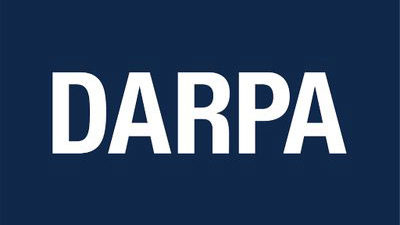Array of Things (AoT) has selected AT&T to be the preferred provider of wireless connectivity for their urban-sensing project. The AoT project is designed to gather critical data about a city’s environment and infrastructure to help make that city more livable and more efficient.
Beginning with Chicago, the AoT plans to install hundreds of sensor-based nodes in the city to measure factors related to air quality, noise, climate, and traffic congestion. The data collected from the sensors will be transmitted in a highly secure manner over the AT&T wireless network to a central database server at the Argonne National Laboratory, where it will be processed and released openly to the public.
Researchers, city services, and technology developers will be able to use the data to address energy efficiency, traffic safety, urban flooding, air pollution, and many more urban challenges.
The AoT program operators aim to build an urban-scale research instrument comprising a network of at least 500 Internet-connected “nodes,” each supporting multiple environmental and air quality sensors. As a first of its kind public sensor utility, AoT will produce an open and freely available source of urban sensor measurements to support research, development, education, prototyping, and demonstration. The program operators have designed AoT to enable the instrument to evolve at a pace commensurate with consumer electronics, maintaining key capabilities over many years.
The initial prototype, funded by Argonne National Laboratory, involved 12 nodes equipped with a collection of environmental sensors such as temperature, light, sound, humidity and air quality. Each node was mounted on private facilities at the University of Chicago, Argonne National Laboratory, and DePaul University for testing purposes, with installation occurring between July 2014 and June 2015.
Beginning in summer 2016 a second set of prototypes will be mounted in Chicago on street signal light poles and external building walls. The network will be expanded to roughly 500 nodes from 2016 to 2018. The program operators will develop functionality to enable research, application development, education, prototyping, or demonstration projects.
The program will be evaluated nine months after the second set of prototype nodes are mounted in the city and every 12 months from that time on. The evaluation criteria and the results of each review will be made available to the public.
Sensor readings will be processed and sent to a database managed by the program operators. A period of evaluation and calibration will be required for each sensor; this period will vary based on the sensor or data that is collection. As one function of AoT is to evaluate new sensor technologies, the evaluation process will also involve a determination as to whether a particular sensor is producing accurate data reliably.
Once evaluation determines that the sensor is producing accurate and reliable data, and once calibration is complete, the sensor will enter operations and its data will be made publically available through the city’s Data Portal to support application development and data analysis. All operational sensor data will be publicly available as open data, owned by the University of Chicago.
The program operators have designed the AoT system to protect privacy. This document describes the processes, procedures, and technologies that will be used to collect and publish sensor data is both correct and, where necessary, anonymized before publication. Any images and other data collected by AoT nodes for calibration will be protected by information security controls, and available only to authorized individuals and only for research purposes.
Each node will report sensor values at regular intervals. To comply with security and privacy requirements (detailed in the Privacy Policy document), data will first be transmitted to a database managed by the program operators. Data meeting the AOT privacy policy standards will be published to the City’s Data Portal and may also be published to other data analytics services as needed.
All data published from the platform will be open and free of charge. In order to support economic development, data from approved experimental sensors, installed for specific research and development purposes, may be withheld from (or aggregated for) publication for a period of time in order to protect intellectual property, ensure privacy or data accuracy, and enable the proper calibration of the sensor.
The AoT involves engineering and placing a network of physically secure enclosures with power, Internet access, and standard specifications that will allow for efficient installation/replacement of those devices by city technicians.
These devices must operate for period of months without physical intervention, and must be provided with adequate environmental protection, particularly with respect to temperature and moisture. The program operators and the City of Chicago will cooperate to enable nodes to be repaired and replaced in case of damage or loss.
The University of Chicago and Argonne National Laboratory serve as program operators and in partnership with the City will manage and operate the AoT program,. The program operators are responsible for the design, development, repair, replacement, and support of the nodes and the technical infrastructure needed to enable data collection, processing, and storage.
The program operators will leverage strategic partnerships with industry, academia, and not- for-profits, as well as the increasing availability of open source tools and frameworks that can be adapted to or applied directly to the instrument, to support program goals. The city will support the operators by providing program oversight; policy guidance; installation and maintenance support; and technical assistance to make AoT data publically accessible.
The AoT Security and Privacy Group (SPG) will advise the EOC with regards to the cyber security and privacy of the AoT technology, procedures, and policies to enable the AoT instrument to provide the security and privacy goals described in this and other AoT policies. This group will review and advise the EOC on proposed changes to the AoT technology, procedures, and policies impacting the instrument’s security and privacy, as well as making recommendations based on feedback from AoT stakeholders, experiences of the AoT program operators and other Smart City deployments.
The SPG will advise the EOC and help coordinate the conducting of external reviews or testing of the AOT instruments cybersecurity and privacy.




